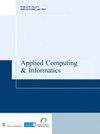A review of cross-border cooperation regulation for digital forensics in LATAM from the soft systems methodology
IF 4.9
Q1 COMPUTER SCIENCE, INFORMATION SYSTEMS
引用次数: 0
Abstract
PurposeBased on this holistic model, the authors propose and analyze seven key issues related to the admissibility of digital media in cross-border trials considering four Latin American countries.Design/methodology/approachThe authors apply the modeling process of the soft systems methodology by Checkland in order to develop a holistic model focused on human situation problems involving digital media and information technology devices or systems.FindingsThe authors discuss the status of the identified key issues in each country and offer a perspective on the integration of cross-border work analyzing the contribution of these key issues to the collaboration between countries criminal cases or the use of foreign digital artifacts in domestic trials.Research limitations/implicationsIn this study, the authors assumed that the problems of official interaction between agencies of different countries are considered solved. However, for future studies or research, the authors recommend that these issues can be considered as relevant, since they are related to cross-border cooperation topics that will necessarily require unavoidable official arrangements, agreements and formalities.Practical implicationsThis work is aimed at defining and analyzing the key issues that can contribute to the application of current techniques and methodologies in digital forensics as a tool to support the legal framework of each country, considering cross-border trials. Finally, the authors highlight the implications of this study lie in the identification and analysis of the key issues that must be considered for digital forensics as a support tool for the admissibility of digital evidence in cross-border trials.Social implicationsThe authors consider that digital forensic will have high demand in cross-border trials, and it will depend on the people mobility between the countries considered in this study.Originality/valueThis paper shows that the soft systems methodology allows elaborating a holistic model focused on social problems involving digital media and informatics devices.从软系统方法论回顾拉丁美洲数字取证的跨境合作法规
目的基于这一整体模型,作者考虑四个拉丁美洲国家,提出并分析了与数字媒体在跨境审判中的可采性相关的七个关键问题。设计/方法论/方法作者应用Checkland软系统方法论的建模过程,以开发一个专注于涉及数字媒体和信息技术设备或系统的人类情境问题的整体模型。发现作者讨论了每个国家已确定的关键问题的现状,并就跨境工作的整合提供了一个视角,分析了这些关键问题对国家间刑事案件合作或在国内审判中使用外国数字文物的贡献。研究局限性/含义在这项研究中,作者认为不同国家机构之间的官方互动问题已经得到解决。然而,对于未来的研究或研究,作者建议可以将这些问题视为相关问题,因为它们涉及跨境合作主题,必然需要不可避免的官方安排、协议和手续。实际含义这项工作旨在定义和分析有助于将当前技术和方法应用于数字取证的关键问题,将其作为支持每个国家法律框架的工具,同时考虑跨境审判。最后,作者强调,这项研究的意义在于识别和分析数字取证作为跨境审判中数字证据可采性的支持工具必须考虑的关键问题。社会含义作者认为,数字取证在跨境审判中有很高的需求,这将取决于本研究所考虑的国家之间的人员流动性。独创性/价值本文表明,软系统方法论允许制定一个整体模型,重点关注涉及数字媒体和信息设备的社会问题。
本文章由计算机程序翻译,如有差异,请以英文原文为准。
求助全文
约1分钟内获得全文
求助全文
来源期刊

Applied Computing and Informatics
Computer Science-Information Systems
CiteScore
12.20
自引率
0.00%
发文量
0
审稿时长
39 weeks
期刊介绍:
Applied Computing and Informatics aims to be timely in disseminating leading-edge knowledge to researchers, practitioners and academics whose interest is in the latest developments in applied computing and information systems concepts, strategies, practices, tools and technologies. In particular, the journal encourages research studies that have significant contributions to make to the continuous development and improvement of IT practices in the Kingdom of Saudi Arabia and other countries. By doing so, the journal attempts to bridge the gap between the academic and industrial community, and therefore, welcomes theoretically grounded, methodologically sound research studies that address various IT-related problems and innovations of an applied nature. The journal will serve as a forum for practitioners, researchers, managers and IT policy makers to share their knowledge and experience in the design, development, implementation, management and evaluation of various IT applications. Contributions may deal with, but are not limited to: • Internet and E-Commerce Architecture, Infrastructure, Models, Deployment Strategies and Methodologies. • E-Business and E-Government Adoption. • Mobile Commerce and their Applications. • Applied Telecommunication Networks. • Software Engineering Approaches, Methodologies, Techniques, and Tools. • Applied Data Mining and Warehousing. • Information Strategic Planning and Recourse Management. • Applied Wireless Computing. • Enterprise Resource Planning Systems. • IT Education. • Societal, Cultural, and Ethical Issues of IT. • Policy, Legal and Global Issues of IT. • Enterprise Database Technology.
 求助内容:
求助内容: 应助结果提醒方式:
应助结果提醒方式:


